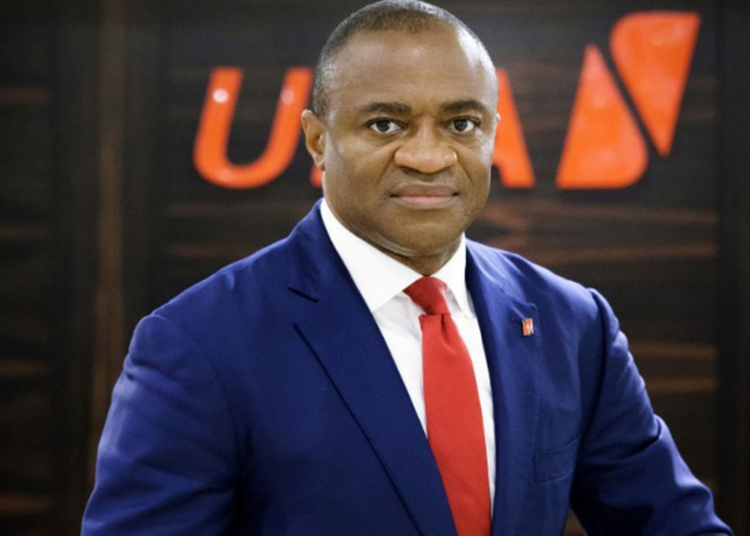Empowering women in agriculture is not only a moral imperative but an economic necessity, even as women are the backbone of agric in Nigeria, contributing over 70 per cent of the labour force in this sector, said the group managing director/CEO, United Bank for Africa (UBA), Oliver Alawuba.
Alawuba, while speaking at the ‘Nigeria for Women Farming, Health, Empowerment, Justice, Entertainment, and Fund Raising Programme/Project (EMPOWERHER) in Villa Banquet Hall, Abuja, noted that, the theme, ‘Farming to Feed the Nation, Empowerment to Give Women Voices, and Justice for Crimes to Have Consequences via Mobile Court,’ captured the essence of the multifaceted issues confronting women in Nigeria and the need for a comprehensive response.
He noted that, despite their indispensable role in feeding the nation, many women farmers remain under-resourced and lack access to financing, land, and technology.
To him, “the National Bureau of Statistics (NBS) data shows women make up 49.3 per cent of Nigeria’s population, and an estimated 70 per cent of women in rural areas are engaged in Agriculture. Closing this gap is critical for boosting food security, reducing poverty, and driving inclusive growth.
“Why must we empower women? Because when women thrive, societies prosper. The United Nations has consistently emphasised that gender equality and women’s empowerment are at the heart of sustainable development. Studies show that if we close the gender gap in the workforce, global GDP could increase by as much as $12 trillion by 2025.”
Here in Nigeria, he said, empowering women is not just an ethical obligation – it is an economic imperative as a woman with access to resources, education, and justice, becomes a powerful force for change, lifting her family, her community, and her nation.
At United Bank for Africa Plc (UBA), he stressed that the bank recognises that women are the driving force behind sustainable development, innovation, and economic growth. “Across our 24 countries of presence, we have actively embraced the potential and leadership of women, not just in words but in actions.
With close to 50 per cent female representation on our Board, 40 per cent of Senior Management roles held by women and an impressive 59 per cent of our Graduate Management Trainees being female, we are truly leading the charge for gender equality in the corporate world,” he noted.
Beyond leadership and representation, through exclusive SME loan products tailored for women-led and women-owned businesses, he said, his bank has ensured that 78 per cent of its Working Capital Loans are empowering these women-led and women-owned enterprises.
This unwavering commitment, he noted, underlines its role as a foremost pan-African Global Banking Group dedicated to advancing women’s empowerment and fulfilling the promise of the United Nations’ Sustainable Development Goal 5, i.e. achieving Gender Equality and empowering all women and girls.
To him, “empowering women means equipping them with the tools to participate fully in all sectors of society, from Agriculture to Technology, from Leadership to Entrepreneurship. It means ensuring they have access to healthcare, legal recourse, and educational opportunities.
“It means giving them a platform to make decisions and assert their rights. Today’s theme encapsulates this holistic approach to empowerment – supporting women through farming, ensuring their health, advocating for justice, and amplifying their voices in all aspects of life.”
While the responsibility of empowering women cannot rest on the government alone, he said, it requires the concerted effort of everyone- individuals, Civil Society Organisations, Development Partners, and the Private Sector – to come together with a shared commitment to this cause.
This fundraising initiative, he noted, is an opportunity for each of us to play a part in transforming the lives of women across Nigeria. By contributing to the EMPOWERHER programme, he said, ‘you are not only investing in women – but you are also investing in the future of Nigeria.’











